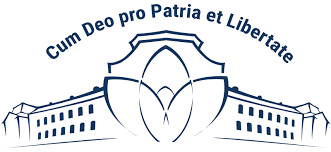BEYOND GROWTH: RETHINKING SUSTAINABLE TOURISM THROUGH SOCIAL, ECONOMIC, AND ENVIRONMENTAL DIMENSIONS
DOI:
https://doi.org/10.32782/2786-5843/2025-2-6Keywords:
Sustainable Tourism, Urban Planning, Social Sustainability, Tourism Management, Tourism Policy, Urbanization, Sustainable DevelopmentAbstract
Relevance of the study. The study explores the complex relationship between urban tourism and sustainable development, emphasizing the balance between economic growth, social equity, and environmental responsibility. The subject of this research is the evolving governance models for sustainable tourism in urban environments, where overtourism, short-term rentals, and changes in resident-tourist dynamics pose new challenges for policymakers. The objective of the study is to analyze theoretical approaches to sustainable tourism management, assess the social impacts of tourism expansion, and propose governance strategies that integrate tourism into broader urban planning frameworks while maintaining sustainability principles. The methodology employed in this research includes a systematic review of scholarly literature on sustainable tourism, urban tourism development models, and destination management theories, with a focus on the Butler’s Tourism Area Life Cycle Model and Doxey’s Irritation Index. The study also incorporates comparative analysis of case studies, particularly examining tourism policy shifts in European cities facing overtourism. Key qualitative indicators related to visitor management, carrying capacity, and governance frameworks are critically assessed. The results indicate that while traditional tourism management approaches emphasize economic benefits, contemporary strategies must prioritize long-term social sustainability by integrating stakeholder participation, resident well-being, and cultural heritage preservation. The study identifies a paradigm shift from minimizing negative tourism impacts to actively maximizing positive contributions, such as infrastructure improvements, economic diversification, and cultural revitalization. Furthermore, governance models that emphasize participatory decision-making and adaptive management prove more effective in balancing tourism growth with local community interests. The findings of this study can be applied in municipal governance, tourism policymaking, and strategic urban planning. Policymakers, city planners, and tourism industry stakeholders can utilize the proposed governance frameworks to create balanced, community-centered tourism policies that enhance urban sustainability. The insights from this research also contribute to academia by bridging gaps between tourism development theories and practical urban sustainability models. In conclusion, the research underscores that sustainable urban tourism management requires a shift from conventional economic-driven models to holistic frameworks that integrate environmental conservation, social equity, and responsible governance. Future studies should further explore the role of digitalization, crisis resilience, and comparative policy analyses to enhance sustainable tourism strategies. A comprehensive, stakeholder-driven approach will be key to ensuring that tourism continues to contribute positively to urban development rather than becoming a source of socio-environmental degradation.
References
Barron K., Kung E., Proserpio D. The Effect of Home-Sharing on House Prices and Rents: Evidence from Airbnb. Marketing Science. 2019. № 39 (6). P. 1–21.
Ajuntament de Barcelona. Barcelona Tourism for 2020. Barcelona City Council. 2017. URL: https://ajuntament.barcelona.cat/turisme/sites/default/files/barcelona_tourism_for_2020.pdf (accessed: 07.01.2025).
Doxey G.V. A causation theory of visitor-resident irritants: Methodology and research inferences. Travel and Tourism Research Association Proceedings, 1975. P. 195–198.
Butler R.W. The Concept of a Tourist Area Cycle of Evolution: Implications for Management of Resources. Canadian Geographer. 1980. Vol. 24, № 1. P. 5–12.
Lindberg K., McCool S.F., Stankey G.H. Rethinking Carrying Capacity. Annals of Tourism Research. 1997. Vol. 24, № 2. P. 461–465.
McCool S.F., Lime D.W. Tourism Carrying Capacity: Tempting Fantasy or Useful Reality? Journal of Sustainable Tourism. 2001. Vol. 9, № 5. P. 372–388.
Formica S. Destination attractiveness as a function of supply and demand interactions. Journal of Travel Research. 1996. Vol. 35, № 4. P. 40–45.
Fodness D. Measuring tourist motivation. Annals of Tourism Research. 1994. Vol. 21, № 3. P. 555–581.
Rittel H.W.J., Webber M.M. Dilemmas in a general theory of planning. Policy Sciences. 1973. Vol. 4, № 2. P. 155–169.
Sharpley R. Tourism and sustainable development: Exploring the theoretical divide. Journal of Sustainable Tourism. 2000. Vol. 8, № 1. P. 1–19.
Page S.J., Connell J. Tourism: A Modern Synthesis. London : Cengage Learning, 2006. 576 p.
Leiper N. Tourist Attraction Systems. Annals of Tourism Research. 1990. Vol. 17, № 3. P. 367–384.
Dwyer L., Kim C. Destination competitiveness: Determinants and indicators. Current Issues in Tourism. 2003. Vol. 6, № 5. P. 369–414.
Mason P. Tourism Impacts, Planning and Management. Oxford : Butterworth-Heinemann, 2003. 210 p.
Mihalic T. Environmental management of a tourist destination. Tourism Management. 2000. Vol. 21, № 1. P. 65–78.
Panayotou T. Empirical tests and policy analysis of environmental degradation at different stages of economic development. World Employment Programme Research Working Paperm 2003. 42 p.
Southgate C. Ecotourism in Kenya: The vulnerability of communities. Journal of Ecotourism. 2006. Vol. 5, № 1. P. 80–96.
Telfer D.J., Sharpley R. Tourism and Development in the Developing World. London : Routledge, 2008. 256 p.






